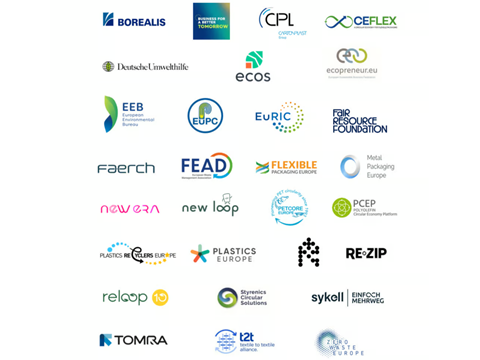
A coalition of stakeholders led by TOMRA are calling on the European Commission to integrate provisions supporting circularity measures under the draft Clean Industrial State Aid Framework (CISAF).
The Clean Industrial Deal (CID) states that circularity will be a priority, adding that it reduces waste, lowers production costs and CO2 emissions and creates an industrial model that ‘benefits the environment and enhances economic competitiveness’. Apparently, the ambition of the Clean Industrial Deal is to ‘make the EU the world leader on circular economy by 2030.’
The coalition of resource management companies believes this ambition cannot be realised without appropriate financial mechanisms in place to scale up circular infrastructure. It expresses ‘deep concern’ that circularity projects are not explicitly mentioned in the draft CISAF.
The companies claim that having circularity at the centre of its decarbonization strategy means the EU will improve the affordability and accessibility of essential materials and reduce cross-border trade dependencies as materials are reused, remanufactured, recycled and kept within the economy for longer.
According to the stakeholders, enabling state aid for projects focused on material circularity will make Europe’s industrial production more sustainable, accelerate decarbonization and improve resource security. They add that having clear provisions to support circularity under the Clean Industrial Deal is ‘essential’ to meet the objective of increasing material circularity by 24% by 2030, ensuring that resources remain in circulation as long as possible.
In February, we reported on what the packaging industry thought of the Clean Industrial Deal with its implications for recycling infrastructure, European preference criteria, and harmonized regulations being praised – however, industry players warned against preferential funding in the clean tech transition, failing to address regulatory loopholes, and overlooking the role of reuse in optimizing raw materials. The Deal focuses on energy-intensive industries such as steel, metal and chemical sectors that may need assistance to decarbonize, transition into clean energy, and tackle roadblocks like high costs, complex regulation, and unfair global competition.
The following month Cepi called on the European Commission to continue negotiations after the US government’s tariffs on steel and aluminium, citing the potential for future tariffs including pulp and paper and aiming to avoid supply chain disruptions. Cepi is currently taking part in a consultation launched by the Commission on the list of American products targeted by European retaliation measures, representing the European pulp and paper industry.
If you liked this story, you might also enjoy:
The ultimate guide to the Packaging and Packaging Waste Regulation in 2025
How are the top brands progressing on packaging sustainability?
Everything you need to know about global packaging sustainability regulation in 2025
The key to increasing the use of reusable packaging in supermarkets














No comments yet